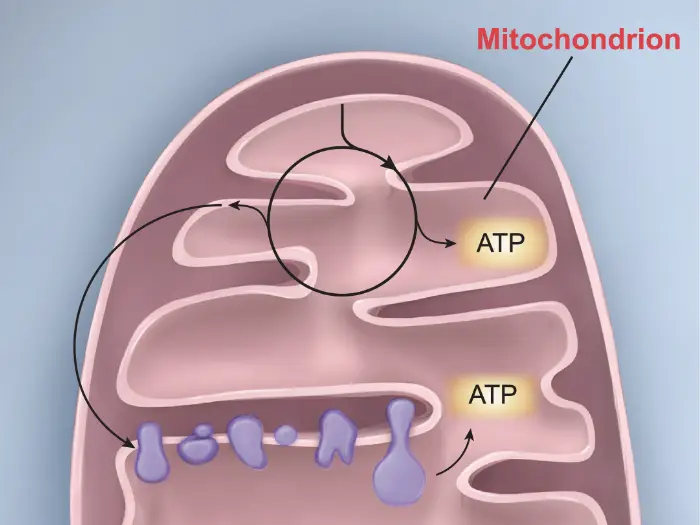Wondering how to prep for the ACT Science section? We have got you covered! Our study guide has all the ACT Science tips and practice questions you need to study for the exam.
Focus Areas for Successful ACT Science Prep
If you opt to take the ACT Science section, it will impact your overall score. To succeed on this portion of the exam, it's essential to sharpen key areas:
-
Analysis Skills:
Develop the ability to interpret data and evaluate experiments critically. Practice drawing meaningful conclusions from the information provided.
-
Interpretation of Scientific Information:
Enhance your ability to understand and apply scientific information presented in graphs, tables, and/or charts. This skill is vital for navigating different scientific scenarios.
-
Scientific Investigation Skills:
Sharpen your skills in assessing hypotheses, understanding experimental methods, and making accurate predictions. A solid grasp of scientific investigation is fundamental for tackling the range of questions on the exam.

Study Plans for ACT Science
Your study sessions should be tailored to what works best for you. Consistent daily study, even if it's only for a short duration, can fill knowledge gaps and help you achieve a high score. Incorporating effective ACT Science plans into your routine will help you stay focused and maximize your study sessions. Understanding how to self-study for ACT Science efficiently can significantly improve your performance, helping you cover key topics while improving your time management and test-taking skills.
Month 1: Foundations of ACT Science
- Week 1: Test overview + Graph and table analysis
- Week 2: Scientific method + Experimental design basics
- Week 3: Practice with Data Representation passages
- Week 4: Practice with Research Summaries
Activities:
- Take one full ACT Science section (timed)
- Create a science-specific mistake journal
- Begin practicing timing with short drills
- Watch videos or read short scientific articles for vocabulary exposure
Month 2: Reinforce Weaknesses
- Target weak areas identified in Month 1
- Practice with harder question types
- Alternate between untimed and timed section drills
- Focus on Conflicting Viewpoints passages and trend-based questions
Activities:
- Practice interpreting scientific hypotheses
- Use ACT flashcards for vocabulary and science terms
- Begin taking full-length ACT practice tests every other weekend
Month 3: Advanced Skills & Strategy
- Build test endurance and critical thinking under pressure
- Combine science practice with other sections to simulate test days
Activities:
- Take 2 full-length, timed ACTs this month
- Review science passages by question type
- Practice guessing strategies and time-triaging techniques
- Write explanations for each incorrect answer
Month 4: Mastery Through Simulation
- Mimic real test conditions for stamina and pacing
Analyze performance trends. - Track fatigue, pacing, and accuracy
Activities:
- One full-length ACT each week
- Practice one ACT Science passage daily
Month 5: Refine and Polish
- Revisit mistake journal and notes
- Focus on confidence-building and pattern recognition
- Use only official ACT practice resources
- Teach scientific reasoning concepts aloud or to a peer
Activities:
Create “Quick Reference” review sheets for:
- Graph reading
- Hypothesis testing
- Variables and controls
Month 6: Peak Performance
Weeks 1–2:
- Take full-length ACTs each weekend
- Light, consistent daily science review
Weeks 3–4:
- No new strategies or content
- Review notes, avoid over-practicing
- Mentally rehearse test-day routine
Test Week:
- Review only core notes
- Get full sleep
- Keep your practice short, strategic, and stress-free
Month 1: Build Your Foundation
- Start with a full-length ACT practice test (focus on Science).
- Alternate focus: Week 1: Graphs/Tables, Week 2: Experiments, Week 3: Viewpoints
- Dedicate 1 hour/day: 30 min ACT-style questions, 30 min review/mistake journaling.
- Take a full ACT practice test every weekend to monitor improvement.
Month 2: Strategy and Timing
- Focus on weakest areas from Month 1.
- Start timing yourself for each passage (target: 5 minutes/passage).
- Mix in Conflicting Viewpoints and hard passages.
- One timed full-length ACT every other weekend.
Month 3: Simulate the Real Thing
- Practice full ACT Science sections under test conditions.
- Review answers in detail; focus on explaining incorrect logic.
- Final weeks: light review of notes and strategies, avoid new material.
- Take full-length ACTs each weekend.
Weeks 1–2: Deep Focus on Weak Areas
- Take one full ACT Science section per week.
- Practice daily for 60 minutes: 30 minutes of questions,15 minutes of review,15 minutes of vocabulary or graph practice
- Use a mistake journal and strategy notes.
Weeks 3–4: Sharpen Strategy
- Focus on refining timing and passage strategy.
- Practice Conflicting Viewpoints and trend questions.
- Take a full ACT every weekend; mimic test-day routines.
- Final days: light review only, no new content.
Week 1: Diagnose and Train
- Begin with a timed ACT Science section.
- Identify weakest passage type and devote 60% of study time to it.
- Study 1 hour/day: mix of questions, analysis, and explanation writing.
Week 2: Polish and Practice
- Take at least one full ACT test this week.
- Review common error patterns.
- Prioritize confidence, pacing, and consistent timing.
- Avoid cramming; focus on light review and rest.

How to Approach ACT Science Passages
Effectively navigating ACT Science passages involves understanding how information is organized within the text and grasping the sequence of ideas and relationships between elements. Focus on:
- Understanding Structure: Grasp the organization of passages to seamlessly follow the flow of information.
- Strategically Analyzing: Develop an approach to interpret data efficiently, improving your ability to extract key insights.
For a more detailed guide on approaching ACT Science questions, check out our page on How to Approach ACT Science Questions.
10 Tips to Prep for and Pass ACT Science
This section specifically tests your ability to analyze and interpret scientific information in various formats. Here are 10 practical ACT Science tips to help you navigate and excel in the Science section of the ACT exam:
-
Understand the Test Format
Familiarize yourself with the structure of the ACT Science section. Question types can range from interpretation of data and evaluation of models to inferences, experimental results, and scientific investigation. Understand the types of passages, questions, and time constraints involved. This awareness will help you approach the test with confidence.
-
Develop Key Skills
The ACT Science section evaluates specific skills, including interpreting graphs, analyzing data, drawing conclusions, and making predictions. Regularly practice these skills to build your confidence. Concentrate on core subjects — Physics, Biology, Chemistry, and Earth/Space Sciences. Prioritize practicing questions in these areas to strengthen your foundation.
-
Practice Regularly with Sample Questions
Utilize ACT Science sample questions to simulate the test environment. Also, set aside time to take practice exams. This reinforces your understanding of scientific concepts, ensures your answers are supported by the provided information, and helps you get used to the question styles you'll encounter on the actual exam.
Understand that trends presented in a passage are likely to continue, which can help you make informed guesses for unanswered data points. Familiarize yourself with commonly used terms such as independent variable, dependent variable(s), constants, direct relationship, and indirect relationship. This will help you navigate questions more effectively.
-
Use Online Resources and Tools
Explore various online platforms that provide comprehensive study materials. These resources typically offer valuable practice tests, detailed answer explanations, and additional ACT Science prep tips to elevate your preparation. UWorld is known for its extensive question bank and in-depth answer explanations that will further improve your understanding and readiness for the ACT Science section.
-
Time Management
Efficient time management is crucial for success. Practice answering questions under timed conditions to improve your pacing and ensure you can confidently complete the section. Consider saving challenging passages for later. If you encounter a confusing passage, skip it and proceed to the next one. You can always come back to it if time allows. Table-reading questions are generally easier, so prioritize these for efficient time management.
-
Review and Learn from Mistakes
Pay close attention to the details in each question and answer choice to minimize mistakes. Review all of the answer choices to clarify the question and make inferences based on the information provided. Then, analyze incorrect answers to understand where you went wrong. This reflective process can help you identify areas that require additional focus and improvement.
-
Create a Study Schedule
Establish a consistent study routine that covers all relevant topics. A well-organized study plan helps ensure comprehensive preparation across the diverse scientific subjects tested.
-
Stay Calm During the Test
On test day, stay calm and focused. The ability to manage stress positively contributes to your overall performance. Utilize your test booklet strategically by underlining, circling, and taking notes. This will help you focus better, maintain a good pace, and highlight the differences between experiments.
-
Seek Additional Help if Needed
If certain scientific concepts are challenging, don't hesitate to seek help from teachers, online resources, or study groups. Understanding the fundamentals will help you conquer the ACT Science section.
-
Track Your Progress
Regularly assess your progress by taking practice tests and reviewing your performance. Adjust your study plan based on strengths and weaknesses. For effective preparation, consider using UWorld’s ACT Prep Course. This resource offers realistic practice questions and performance-tracking tools to pinpoint areas for improvement. Detailed answer explanations can further enhance your understanding of complex concepts.
By integrating these ACT Science strategies into your study plan, you will be well-prepared to approach the Science section with confidence and achieve your best score.
How UWorld Can Help
Improve your ACT readiness by incorporating UWorld's high-quality prep resources into your study routine. We offer:
- Practice Questions and QBank That Mirror the Real Exam: Our tests closely replicate the ACT experience, ensuring you become familiar with the format and pacing. Our master teachers and experts have written over 3,200 questions at or above exam difficulty.
- Detailed Answer Explanations for Targeted Improvement: All answer choices are written to help you understand why they are correct or incorrect, providing valuable insights.
- Performance Tracking to Keep You Accountable: Reports identify areas for improvement, saving you valuable study time.
Try UWorld’s free ACT practice test to experience ACT prep that will help you study more efficiently.
References
- Science Test Description for the ACT. (2024). ACT.org Retrieved April 7, 2025, from https://www.act.org/content/act/en/products-and-services/the-act/test-preparation/description-of-science-test.html
- THE ACT TEST IS EVOLVING. (2024). Act.org. Retrieved April 7, 2025, from https://www.act.org/content/dam/act/unsecured/documents/act-enhancements-educator-guide.pdf
- Science Test Tips. (2024). ACT.org Retrieved April 7, 2025, from https://www.act.org/content/act/en/products-and-services/the-act/test-preparation/science-practice-test-questions.html?page=0&chapter=0
Read More Related Articles
Learn expert techniques to conquer ACT Science questions. Navigate your way to success with proven strategies. Take your science test preparation to the next level!
About ACT ScienceLearn more about ACT Science to gain valuable insights. Dive into additional resources for expert tips and effective strategies to elevate your performance on test day.
ACT Science Formulas & EquationsDiscover essential formulas and equations to excel in the ACT Science section. Gain additional insights for a comprehensive understanding of the key concepts.
ACT Science Practice Tests & QuestionsAccess a wide range of ACT Science practice tests and questions to sharpen your skills. Start practicing now to improve your score and build test-taking confidence!



